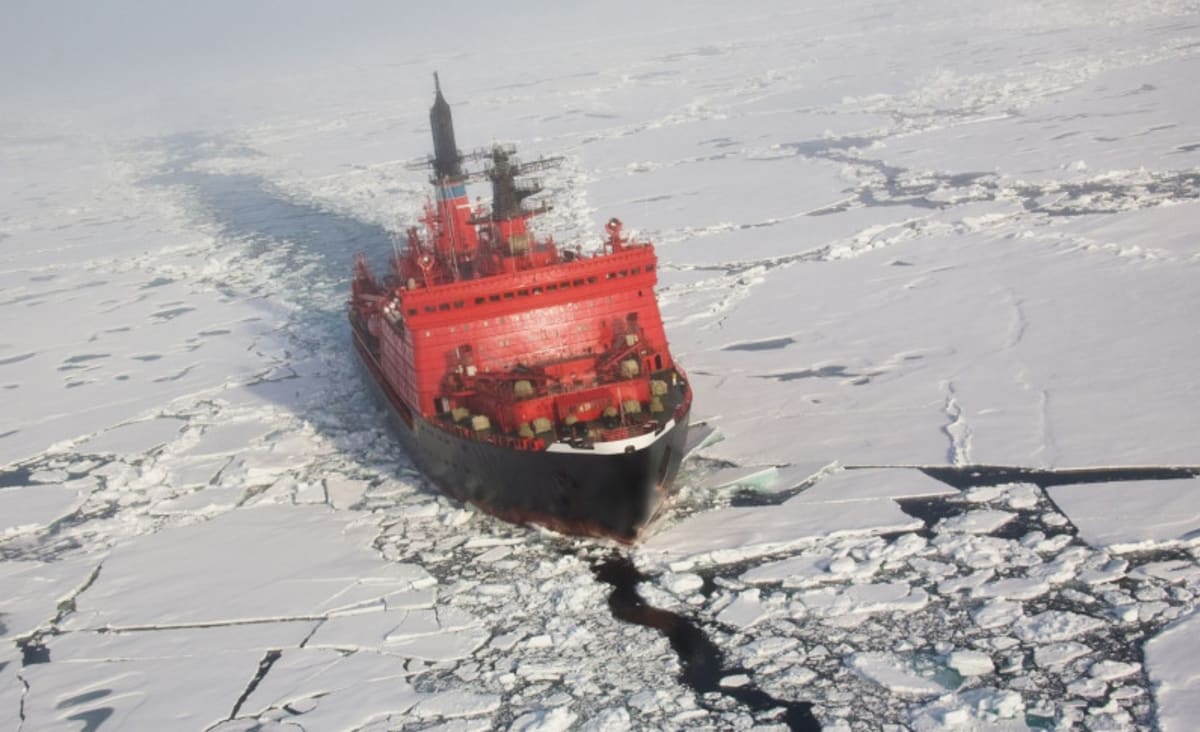
interestingengineering.com
Russia Wants to Rival the Suez Canal by Cutting a Northern Sea Passage
And it wouldn't be possible without the effects of climate change and a nuclear icebreaker fleet.
International
The Northern Sea Passage links the Pacific Ocean to the Atlantic via Russian Arctic waters. Harsh icy conditions mean the route is not navigable year-round without the help of icebreakers.
So it might come as a surprise that 274 billion rubles ($3.7 billion approx.) in state money will be invested in developing the route by 2024, according to an AFP report published in Digital Journal.
That's because the rate of receding ice cover in the region means that Moscow is aiming to enable year-round cargo navigation through the passage by 2030. The Russian government highlights the fact that the passage is much shorter than the route through the Suez Canal. In fact, when the Ever Given cargo ship blocked the Suez Canal earlier this year, the Russian government stated that the Northern Sea passage was a "viable alternative."
According to the AFP report, Russia aims to boost traffic through the passage from approximately 33 million tonnes of cargo in 2020 to 80 million tonnes by 2024. It then aims to double this to 160 million tonnes by 2035. As a point of reference, the Suez Canal allows the passage of 1 billion tonnes of cargo every year.
Russian state atomic energy corporation Rosatom will develop the route and an icebreaker fleet to help with development. It says it will invest 735 billion rubles ($10 billion) into the development by 2024, 274 billion rubles of which will be state money.
Controversial Arctic development plans
Aside from developing the Northern Sea Passage, Russia also wants to tap the Arctic region for resources as ice coverage recedes. That's why Russian President Vladimir Putin has made the development of the Arctic a strategic priority.
"The Arctic region has enormous potential," Russian Deputy Prime Minister Alexander Novak explained earlier this month. "In terms of resources, we’re talking about 15 billion tonnes of oil and 100 trillion cubic meters of gas. Enough for tens if not hundreds of years," he explained.
In order to achieve its ambitions, Russia will utilize icebreakers such as the nuclear-powered "50 Years of Victory", which reached the North Pole this summer. Rosatom, the company behind that ship, aims to build four more nuclear-powered vessels in the next five years. Each of these costs more than $400 million to build and construction can take up to seven years. Unsurprisingly, Russia's Arctic development plans have been met with a global backlash, as they aim to extract fossil fuels thanks to receding ice coverage caused by climate change. Still, the country will likely continue undeterred in its pursuit of a sea passage under its control to rival the Suez Canal.
























































